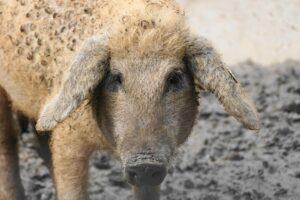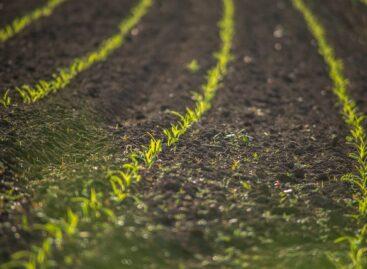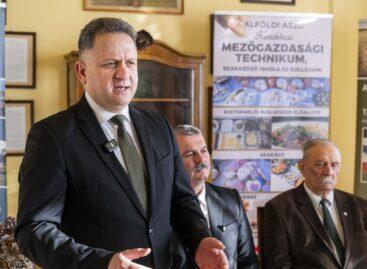AM: Hungarian honey and mangalica introduced in Osaka
The presence of premium agricultural products such as honey and mangalica in the Far Eastern markets must be further strengthened, because these could be the breakout points of Hungarian agriculture in the region – stated István Nagy, Minister of Agriculture, at an event held at the Hungarian Pavilion of the 2025 Osaka World Expo on Friday, according to the AM’s statement on Friday.

(Photo: Pixabay)
The Minister drew attention to the fact that the pig sector is one of the most competitive areas of agriculture in Hungary. In addition to supplying the domestic market, farmers produce a significant export base. The sector’s production in 2024 was almost 600 thousand tons, which represented an 8 percent increase compared to 2023 – they wrote.
Mangalica is our national treasure, which has deservedly earned its place at the forefront of international gastronomy
Once this breed was present in every village yard, but today it is an exclusive food and premium product in the offer of the world’s most famous restaurants. Mangalica meat and mangalica products are also present in the Far East, for example, they are available in the markets of Japan, Singapore, Hong Kong, Macau, and Taiwan – the minister added, according to the statement. Thanks to dedicated farmers, a professional breeding program, and government subsidies aimed at preserving native and endangered agricultural animal breeds, our country can boast a herd of almost 10,000 mangalica sows. We believe that we can only build the gastronomy and food culture of the future successfully and authentically if we draw from our roots and traditions – the minister emphasized.
István Nagy also participated in the conference entitled Sustainability in the Beekeeping Sector as part of the Osaka Expo
Here, he spoke about the fact that cheap honey can be imported, but not pollination. He highlighted that Hungary has one of the highest bee densities in Europe: there are about 13 bee colonies per square kilometer. There are almost 1.2 million bee colonies and 20,000 beekeepers in our country. In Hungary, beekeeping is considered a national value from both a cultural and ecological perspective, and we are among the largest honey producers in the European Union. We produce between 25 and 30 thousand tons of honey annually, 60 percent of which is exported. Outside the European Union, Japan is the largest market for Hungarian honey, with an annual volume of 1,600 tons. 90 percent of the exported honey is acacia and almost all of it arrives here in glass packaging – the statement says.
Beekeeping goes beyond itself, which is why our country provides special support to the sector’s players
With the annual support of 30 euros per bee colony, we also acknowledge that beekeepers not only produce honey (royal jelly, pollen), but also create value through pollination, which greatly contributes to the safe operation and sustainability of agriculture – the head of the Ministry of Agriculture underlined, according to the statement.
MTI
Related news
CBAM causes market disruption
🎧 Hallgasd a cikket: Lejátszás Szünet Folytatás Leállítás Nyelv: Auto…
Read more >The government provides significant funding to support the development of crop dryers
🎧 Hallgasd a cikket: Lejátszás Szünet Folytatás Leállítás Nyelv: Auto…
Read more >Agricultural vocational training also places great emphasis on irrigation development
🎧 Hallgasd a cikket: Lejátszás Szünet Folytatás Leállítás Nyelv: Auto…
Read more >Related news
EY Businessman of the Year: Tibor Veres is the grand prize winner, six special awards were also given out
🎧 Hallgasd a cikket: Lejátszás Szünet Folytatás Leállítás Nyelv: Auto…
Read more >PwC Consumer Loyalty Outlook: Loyalty Enters a New Era
🎧 Hallgasd a cikket: Lejátszás Szünet Folytatás Leállítás Nyelv: Auto…
Read more >







